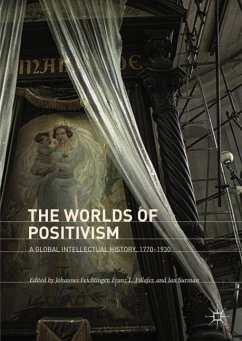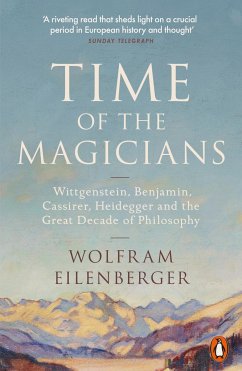
The Fascination with Unknown Time

PAYBACK Punkte
34 °P sammeln!
This volume explores 'unknown time' as a cultural phenomenon, approaching past futures, unknown presents, and future pasts through a broad range of different disciplines, media, and contexts. As a phenomenon that is both elusive and fundamentally inaccessible, time is a key object of fascination. Throughout the ages, different cultures have been deeply engaged in various attempts to fill or make time by developing strategies to familiarize unknown time and to materialize and control past, present, or future time. Arguing for the perennial interest in time, especially in the unknown and unattai...
This volume explores 'unknown time' as a cultural phenomenon, approaching past futures, unknown presents, and future pasts through a broad range of different disciplines, media, and contexts. As a phenomenon that is both elusive and fundamentally inaccessible, time is a key object of fascination. Throughout the ages, different cultures have been deeply engaged in various attempts to fill or make time by developing strategies to familiarize unknown time and to materialize and control past, present, or future time. Arguing for the perennial interest in time, especially in the unknown and unattainable dimension of the future, the contributions explore premodern ideas about eschatology and secular future, historical configurations of the perception of time and acceleration in fin-de-siècle Germany and contemporary Lagos, the formation of 'deep time' and 'timelessness' in paleontology and ethnographic museums, and the representation of time-past, present, and future alike-in music, film, and science fiction.














